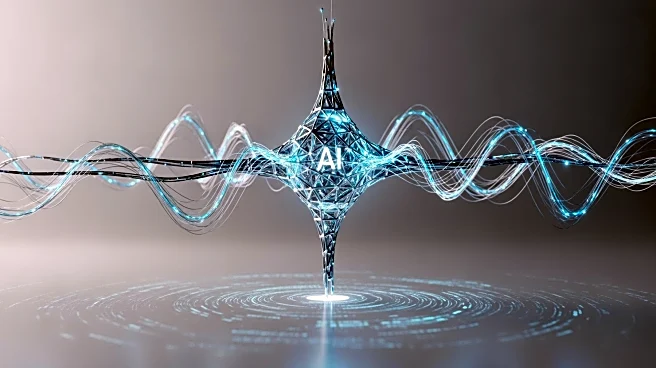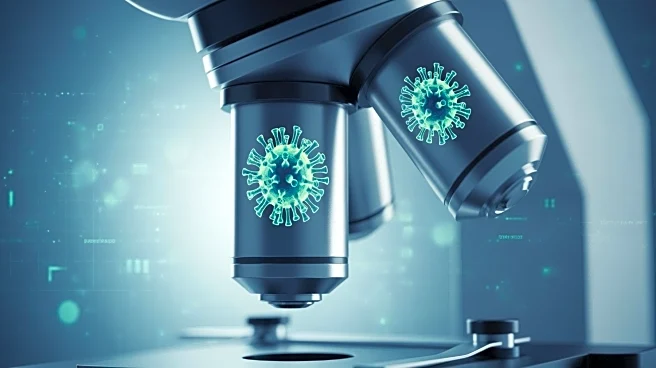What's Happening?
Researchers at The University of Osaka's Institute of Scientific and Industrial Research have unveiled a new edge AI technology called MicroAdapt. This self-evolving AI enables real-time learning and forecasting within compact devices, achieving speeds
up to 100,000 times faster and 60% more accurate than current deep learning methods. The innovation addresses the limitations of cloud-dependent AI by allowing real-time data processing and model updates directly on small devices. This development is poised to impact industries such as manufacturing, automotive IoT, and medical wearables, where high-speed AI processing in resource-constrained environments is increasingly demanded.
Why It's Important?
The introduction of MicroAdapt represents a significant advancement in AI technology, particularly for industries reliant on real-time data processing. By enabling faster and more accurate predictions, this technology can enhance operational efficiency and reduce costs associated with data processing and communication. Industries such as manufacturing and healthcare stand to benefit from improved device autonomy and reduced dependency on cloud infrastructure, potentially leading to more secure and private data handling. The ability to update models in real-time also offers a competitive edge in rapidly changing environments, fostering innovation and adaptation.
What's Next?
The deployment of MicroAdapt technology could lead to widespread adoption across various sectors, prompting companies to rethink their data processing strategies. As industries integrate this technology, there may be increased collaboration between AI developers and industry leaders to tailor solutions to specific needs. Additionally, regulatory bodies might need to address new challenges related to data privacy and security as edge AI becomes more prevalent. The success of MicroAdapt could also inspire further research into self-evolving AI systems, potentially leading to breakthroughs in other areas of artificial intelligence.
Beyond the Headlines
The development of MicroAdapt highlights the growing trend towards decentralizing AI processing, moving away from cloud dependency. This shift could have long-term implications for data privacy, as more processing occurs locally on devices. Furthermore, the technology's ability to adapt and evolve autonomously raises ethical questions about the control and oversight of AI systems. As industries increasingly rely on AI for decision-making, ensuring transparency and accountability in AI operations will become crucial.















